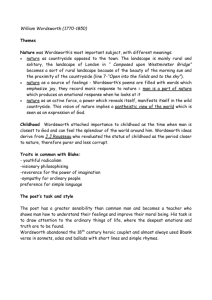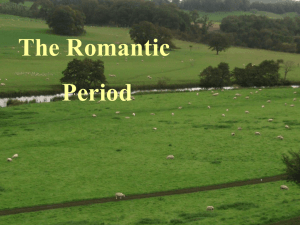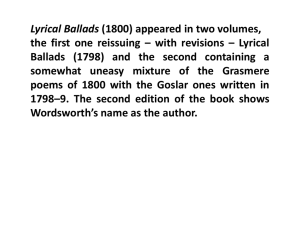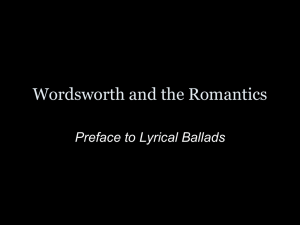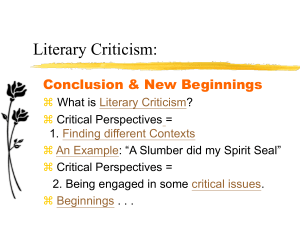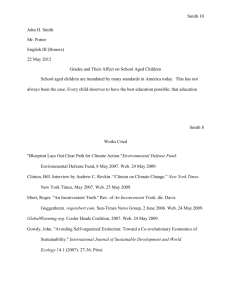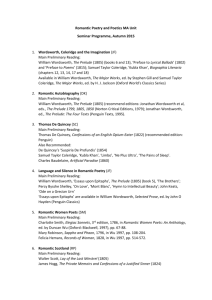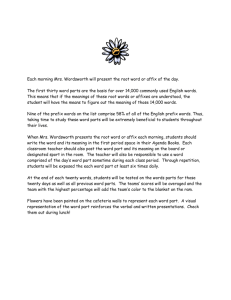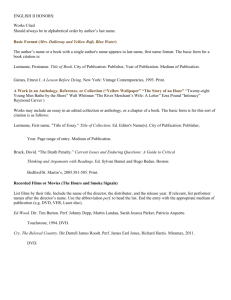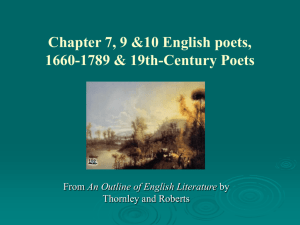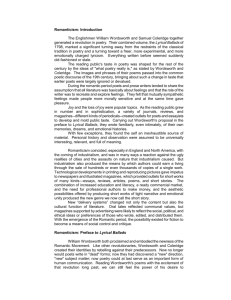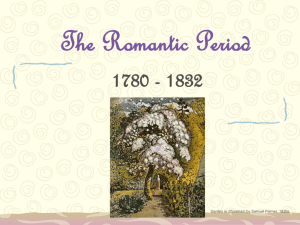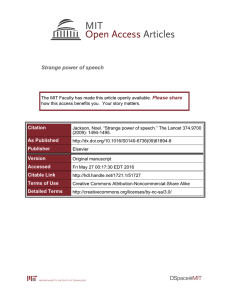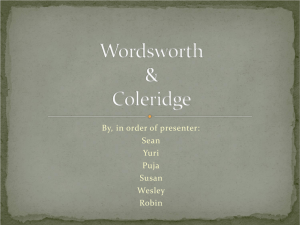Literary Interpretation: Paper 3 - My Carthage
advertisement
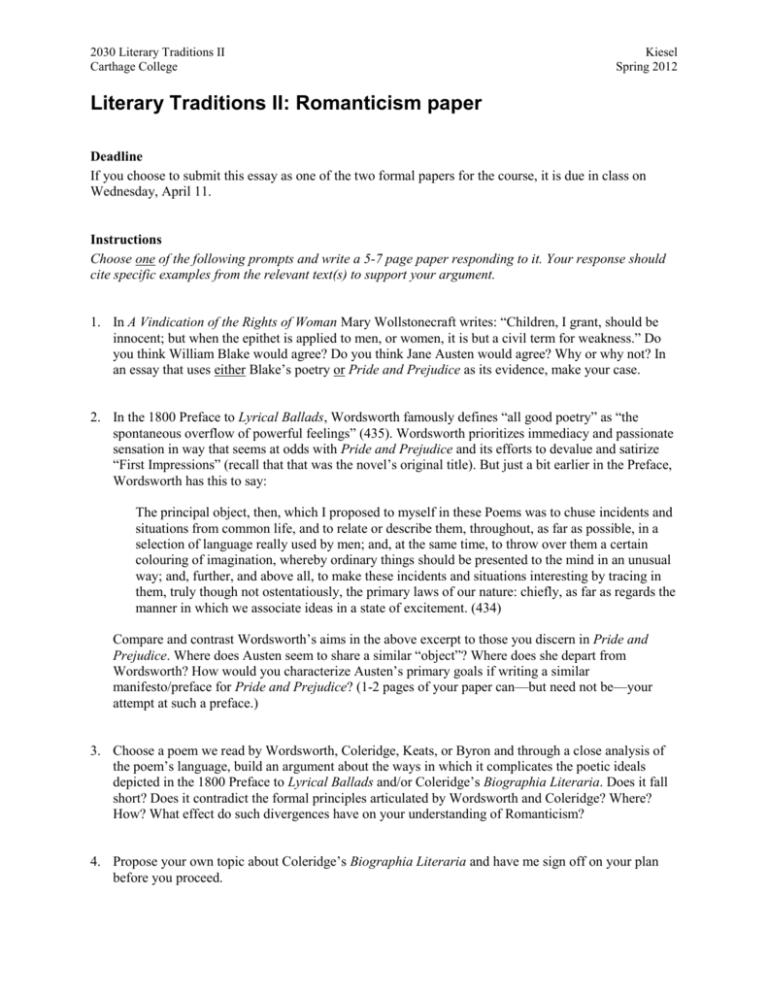
2030 Literary Traditions II Carthage College Kiesel Spring 2012 Literary Traditions II: Romanticism paper Deadline If you choose to submit this essay as one of the two formal papers for the course, it is due in class on Wednesday, April 11. Instructions Choose one of the following prompts and write a 5-7 page paper responding to it. Your response should cite specific examples from the relevant text(s) to support your argument. 1. In A Vindication of the Rights of Woman Mary Wollstonecraft writes: “Children, I grant, should be innocent; but when the epithet is applied to men, or women, it is but a civil term for weakness.” Do you think William Blake would agree? Do you think Jane Austen would agree? Why or why not? In an essay that uses either Blake’s poetry or Pride and Prejudice as its evidence, make your case. 2. In the 1800 Preface to Lyrical Ballads, Wordsworth famously defines “all good poetry” as “the spontaneous overflow of powerful feelings” (435). Wordsworth prioritizes immediacy and passionate sensation in way that seems at odds with Pride and Prejudice and its efforts to devalue and satirize “First Impressions” (recall that that was the novel’s original title). But just a bit earlier in the Preface, Wordsworth has this to say: The principal object, then, which I proposed to myself in these Poems was to chuse incidents and situations from common life, and to relate or describe them, throughout, as far as possible, in a selection of language really used by men; and, at the same time, to throw over them a certain colouring of imagination, whereby ordinary things should be presented to the mind in an unusual way; and, further, and above all, to make these incidents and situations interesting by tracing in them, truly though not ostentatiously, the primary laws of our nature: chiefly, as far as regards the manner in which we associate ideas in a state of excitement. (434) Compare and contrast Wordsworth’s aims in the above excerpt to those you discern in Pride and Prejudice. Where does Austen seem to share a similar “object”? Where does she depart from Wordsworth? How would you characterize Austen’s primary goals if writing a similar manifesto/preface for Pride and Prejudice? (1-2 pages of your paper can—but need not be—your attempt at such a preface.) 3. Choose a poem we read by Wordsworth, Coleridge, Keats, or Byron and through a close analysis of the poem’s language, build an argument about the ways in which it complicates the poetic ideals depicted in the 1800 Preface to Lyrical Ballads and/or Coleridge’s Biographia Literaria. Does it fall short? Does it contradict the formal principles articulated by Wordsworth and Coleridge? Where? How? What effect do such divergences have on your understanding of Romanticism? 4. Propose your own topic about Coleridge’s Biographia Literaria and have me sign off on your plan before you proceed.
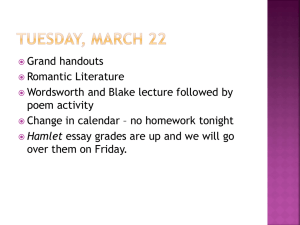
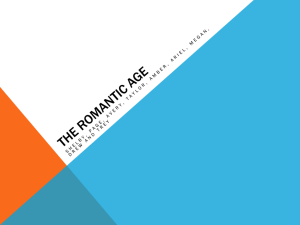
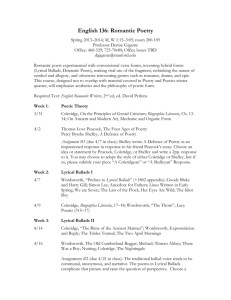
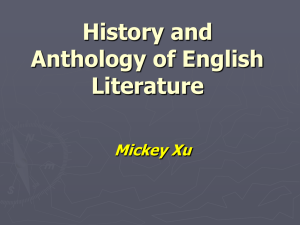
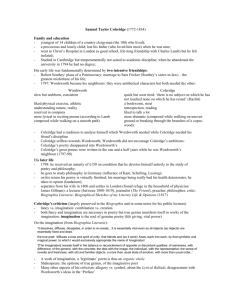
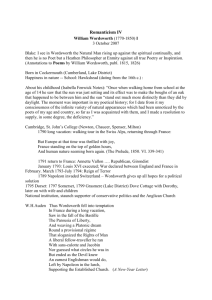
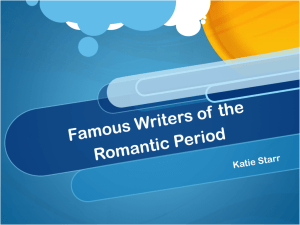
![William Wordsworth [1770-1850]](http://s3.studylib.net/store/data/008052186_1-5bee167b2781418a102ffc4b5551837f-300x300.png)
